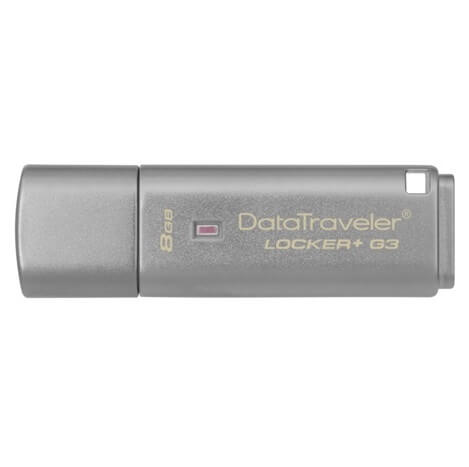Category Archive: mac
Time machine exclude list for developers
Backuping the following folders can eat up hundreds of gigabytes on the backup storage, and can cause significant performance reduction if the backup drive is a HDD (some of them can contains millions of files).
- /Applications/Xcode
- /Applications/Xcode-beta
- ~/.gradle
- ~/.npm
- ~/.composer
- ~/.cocoapods
- ~/.android/avd
- ~/Library/Application Support/JetBrains/Toolbox/apps
- ~/Library/Application Support/Google/Chrome/Default/Application Cache
- ~/Library/Developer/Xcode/DerivedData
- ~/Library/Developer/Xcode/iOS DeviceSupport
- {path to a node project}/node_modules
By removing these folders from the backups and excluding them in the System Preferences, the backup process can be faster and will consume less storage space.
Updater can’t detect DataTraveler Locker+ G3 (DTLPG3)

Nor the Windows, nor the Mac OS firmware updater contains device product IDs for every variant. Such as the “DTLPG3_Mac_Updater.zip” and the “DTLPG3 Updater with El Capitan Fix.zip”.
For me the device productID is same as the DTVP (DataTraveler Vault) drive’s productID.
The trick is to make the firmware updater (Mac OS variant) to work:
- Find your DTLocker+G3’s productID in the System Information app, under USB.
- Change the ‘productID’ in the following file, to your drive’s one:
DTLPG3_Mac_Updater.app/Contents/Resources/devicePersonalities.plist
Ex: My drive’s product is 0x160D, so I changed the ID from 0x169D to 0x160D. - Run the firmware updater app
After this modification, the updater can find and reflash the drive.
The latest updater can be downloaded from the Kingston’s website here: https://www.kingston.com/us/support/technical/products/dtlpg3
With this update the drive can be used with the latest MacOS Catalina.
libRaptorQ teljesítmény elemzés – Önálló laboratórium
1. A szökőkútkódok és alkalmazásuk a végpontok közötti megbízható adatkommunikációban
1.1. Áttekintő
Napjainkban egyre többen és többen fogyasztanak hétköznapjaik során valamilyen online tartalmat, akik kiszolgálása érdekében a világ több pontján elhelyezett szerverek (szerverközpontok) felelnek. Ilyen nagyobb tartalom szolgáltató például a Youtube, a Vimeo, vagy épp a Facebook is. Élő streameket, televízió adásokat, vagy videófelvételeket nézhetünk bárhol, bármikor. Az otthoni személyi és a hordozható számítógépek fejlődésével, ezzel járó nagyobb teljesítményével, a szolgáltatott anyagok egyre jobb és jobb minőségűek lehetnek, melyek arányosan egyre nagyobb sávszélességet igényelnek a tökéletes felhasználói és fogyasztói élményhez. A fogyasztói piac átalakulásával pedig, egyre nagyobb arányban használnak ezen célokra különféle vezetékes/nélküli eszközöket.
Az internetes adatkommunikációt az 1990-es évek elejétől, a HTTP (Hypertext Transfer Protocol) végzi a TCP (Transmission Control Protocol) protokoll segítségével, melyek együtt egy szabványos közeget biztosítanak bármilyen adat megbízható, veszteségmentes és sorrendtartó átvitelére. A TCP szabványosítása már 1981-ben (melyet azóta bővítettek a nagysebességű átvitelekhez igazodóan), a http szabványosítása pedig a 90-es évek elején megtörtént. Ezek a szabványok még az akkori alapvetően vezetékes és néhány kilobájtnyi kommunikációhoz nyújtottak megoldást, mely a mai fentebb említett egyre különfélébb eszközök és közegek számára nem mindig a legoptimálisabb.
Patched UEFI-BIOS for HP G62-A30SH
The Mac OS Mavericks runs great on this laptop, but to get the wlan work, the original wifi card must be replaced.
The UEFI firmware prevent to start with other card than the original, which thing already made a lot of headaches to hp users.
I patched the firmware, and with an also patched flasher, I been able to overwrite the ROM with the modified version.
You can download the modificated files from here => sp54846.zip
Create vmdk from disk/dmg/sparsebundle
- Open your disk image
- Unmount all partitons, but do not eject the drive/image.
- Open the Terminal app
cd /Applications/VMware\ Fusion.app/Contents/Library/- Get your disk number with
diskutil list ./vmware-rawdiskCreator create /dev/diskx fullDevice ~/Desktop/hdd-link lsilogic./vmware-vdiskmanager -r ~/Desktop/hdd-link.vmdk -t 0 ~/Desktop/hdd.vmdk
Hackintosh, avagy Mac a PC-ből…
Pár szó az Apple-ről

A kezdetek óta a prémium kategóriás eszközök a fő profiluk, amit igen jól megtervezett operációs rendszerekkel szállítanak a mai napig, ezeket hívjuk Mac OS, Mac OS X, és iOS-nek. Termékeik hosszú évek, sőt mondhatni évtizedek óta az igényesebb felhasználók kedvence, kik közül sokan elkötelezettek a márka iránt. Azonban a minőségibb eszköznek és szoftvernek ára is van, ha valaki egy alma logóval ellátott terméket szeretne az asztalára tenni, vagy épp a metrón nyomkodni, igencsak a zsebe mélyére kell nyúlnia.
A Mac OS X, amiről a továbbiakban szó esik, teszi az asztali és hordozható személyi számítógépeiket azzá, ami. Ez az egész lelke, a jól megfontolt alapok, és a jól megírt, valamint optimalizált programkód teszi a vele való munkát, illetve szórakozást gördülékennyé, könnyűvé, kreatívabbá.
